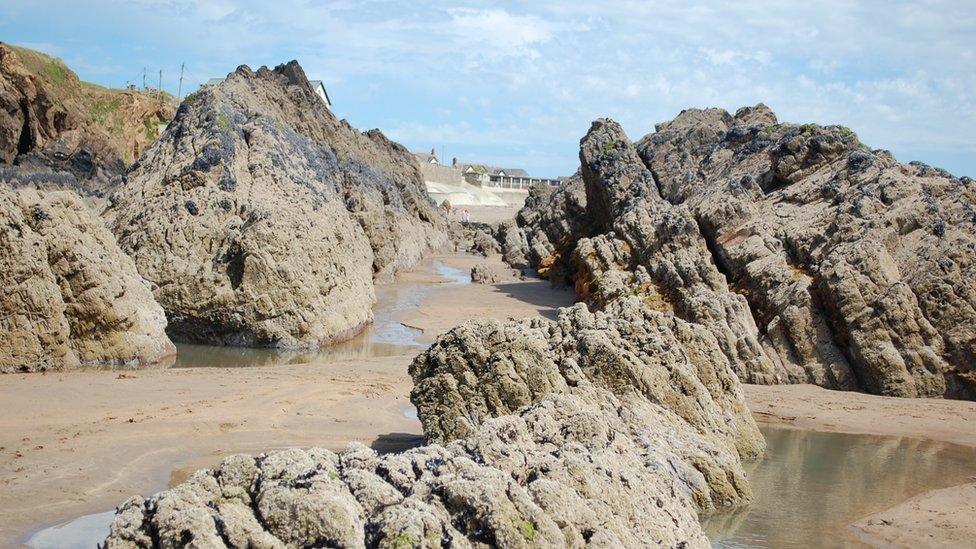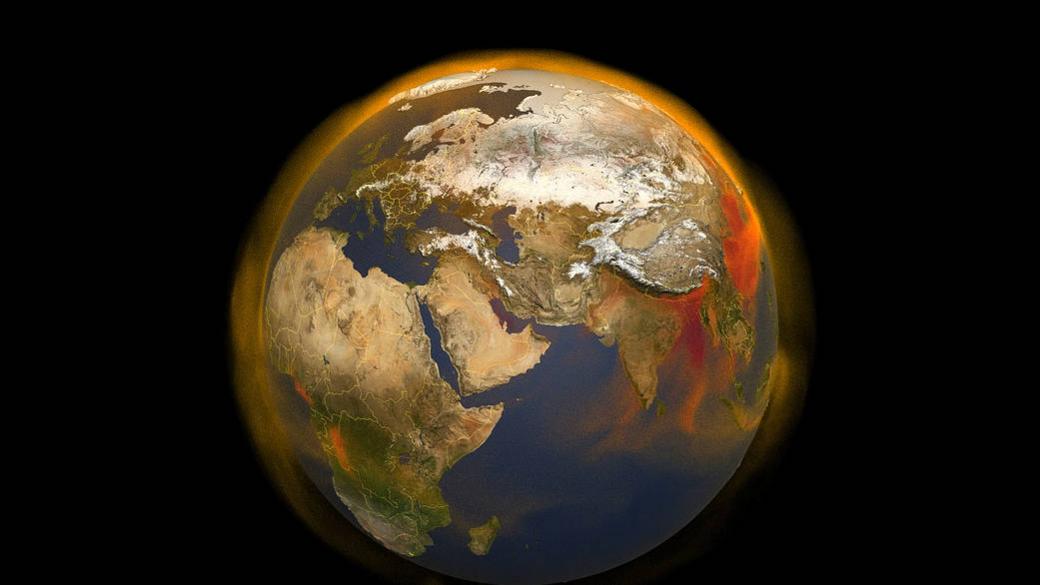Warmer coastline impacts wildlife, Plymouth study shows
- Published

Rising temperatures on the nation's coast are having an adverse effect on wildlife, according to researchers.
A warmer coastline temperature has a "significant" impact on wildlife, according to a new study.
Ecologists at the University of Plymouth found that an increase of 1.5C - the limit set at the Paris Agreement in 2015 - has an impact on algae and wildlife.
The research at sites in Devon and Cornwall showed that fewer species were able to thrive in warmer temperatures.
Researchers said it added to evidence of human-induced climate change.
The study, led by Dr Axelle Amstutz, as part of her PhD, compared sites on the north coast in Bude and Croyde with warmer south-facing sites at Bantham and South Milton Sands.
Researchers found there was reduced abundance and breeding, and a species showed a greater level of stress on the south-facing sites - which had a temperature averaging 1.6C higher at low tide.
They found 45 different species on north-facing sites during the summer of 2018 compared to 30 on south-facing sites.
In winter, the figures were 42 and 24 respectively, while some species were restricted to cooler north-facing surfaces.
Researchers say the study shows evidence of how temperature variation locally can impact species, but also provides an insight into the impacts of global temperature rises.

Researcher Dr Mick Hanley said the study added to evidence of human-induced climate change
Dr Mick Hanley, the study's senior author, said: "We have all heard for some time about the importance of limiting average global temperature increases to 1.5C, and it will undoubtedly be one of the key topics discussed at the COP26 conference.
"This study shows the impact even that kind of increase could have on important species that contribute to the health and biodiversity of our planet.
"As such, it does add to overwhelming evidence of the threats posed by human-induced climate change."
"However, more than that, it shows how the pressure on different species can change even within individual locations.
"For example, we recorded a temperature of 42.5C on a south-facing surface at Croyde at the same time as 22.5C was measured on the opposite north-facing side.
"We believe this shows such sites can be used as a natural laboratory to inform and predict how species and habitats might respond to climate change over the coming decades," he said.

Follow BBC News South West on Twitter, external, Facebook, external and Instagram, external. Send your story ideas to spotlight@bbc.co.uk, external.
- Published1 November 2021

- Published31 October 2021
